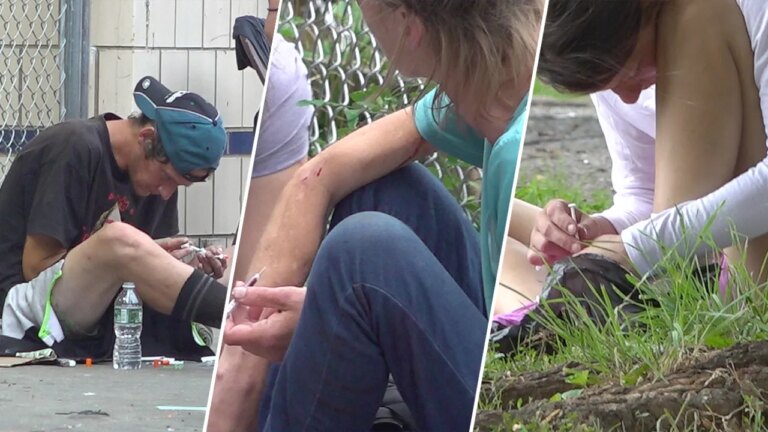Philadelphia Council Passes Bill Restricting Supervised Drug Sites
In a decisive move on Thursday afternoon, the Philadelphia City Council voted 13-1 in favor of a bill aimed at limiting the establishment of supervised drug consumption sites across the city. The legislation is now awaiting Mayor Jim Kenney’s signature for final approval.
This bill, if enacted, would introduce changes to zoning regulations, effectively prohibiting supervised drug consumption sites in nine of Philadelphia’s ten districts, including the well-known Kensington area, infamous for its open-air drug market.
Councilmember Quetcy Lozada, whose district includes Kensington, emphasized her commitment to representing the concerns of her community during the council meeting. She urged those outside of Kensington to respect the daily struggles faced by residents and families affected by the drug crisis.
Kensington’s Drug Crisis in the Spotlight
Kensington has gained global notoriety due to its rampant public drug consumption problem, exacerbated by the presence of xylazine, colloquially known as the “zombie drug” or “tranq.” This substance has inflicted severe, flesh-eating wounds on users.
Critics of supervised drug consumption sites argue that they encourage illegal drug use and place undue burdens on communities. However, supporters, including Mayor Kenney, contend that these sites can play a vital role in preventing drug-related deaths.
A spokesperson for the mayor’s office highlighted the need for more strategies to address the crisis, stating that overdose prevention centers in other cities have effectively saved lives, reduced drug-related litter, and increased access to healthcare services.
Lozada’s Message to Kensington Residents
Councilmember Lozada, the bill’s author, addressed her constituents in Kensington during the council meeting. She expressed her regret for the situation, acknowledging the government’s role in allowing it to persist. Lozada criticized opponents of the bill who do not witness the daily struggles faced by Kensington residents.
She stated, “It is disturbing to me that they think their voices should be heard louder than those who walk those streets every day.”
On any given day in Kensington, scenes of drug users openly injecting themselves, often in the presence of children, and individuals suffering from the effects of drug use are commonplace.
Debate Over the Bill’s Efficacy
Councilmember Kendra Brooks, the sole opponent of the bill, argued that it would not address the surge in overdose deaths. She highlighted the threat posed by drugs like fentanyl and xylazine and stressed the importance of preventing preventable deaths.
Pennsylvania witnessed a record-high of 5,449 drug overdose deaths in 2021, with a nearly 25% increase since 2019, according to data from the Centers for Disease Control and Prevention. The state ranked among the top ten with the highest overdose death rates.
Philadelphia, in particular, recorded nearly 1,300 unintentional overdose deaths in 2021, with over 80% involving opioids like fentanyl or heroin.
Brooks emphasized her focus on strategies that prevent fatalities, expressing her reluctance to support a permanent ban on a tool that has been shown to save lives.
Uncertain Future and Special Permissions
Following the vote, Lozada mentioned that the bill still allows groups interested in establishing supervised drug consumption sites to seek special permission from the zoning board. A vote would be conducted on these proposals, taking into account the council member’s position.
It remains uncertain whether Mayor Kenney will sign the legislation. In the event of a veto, the council retains the option to override it with a two-thirds majority vote.

